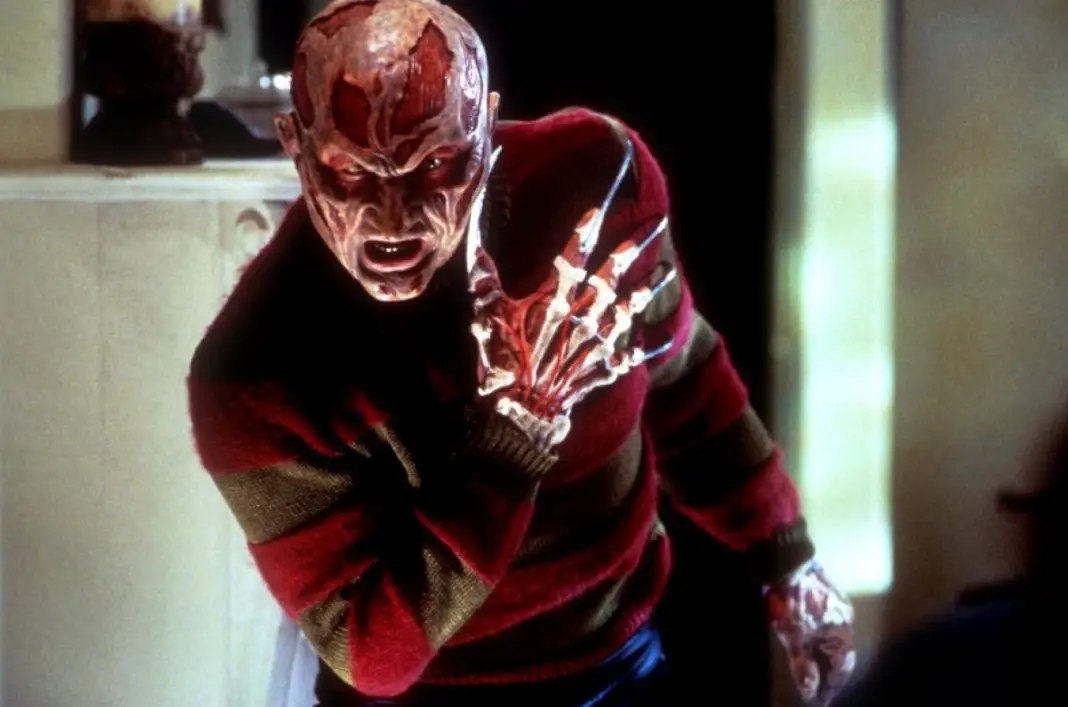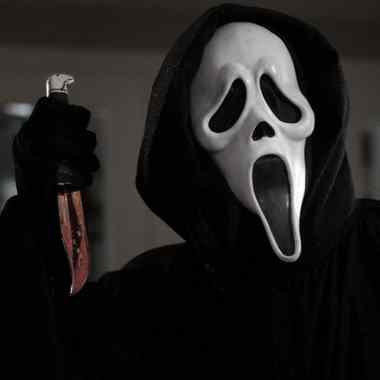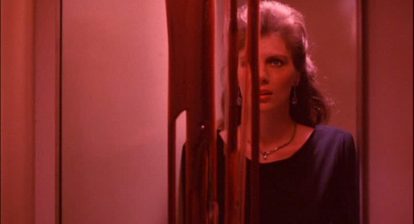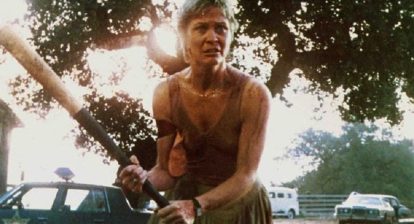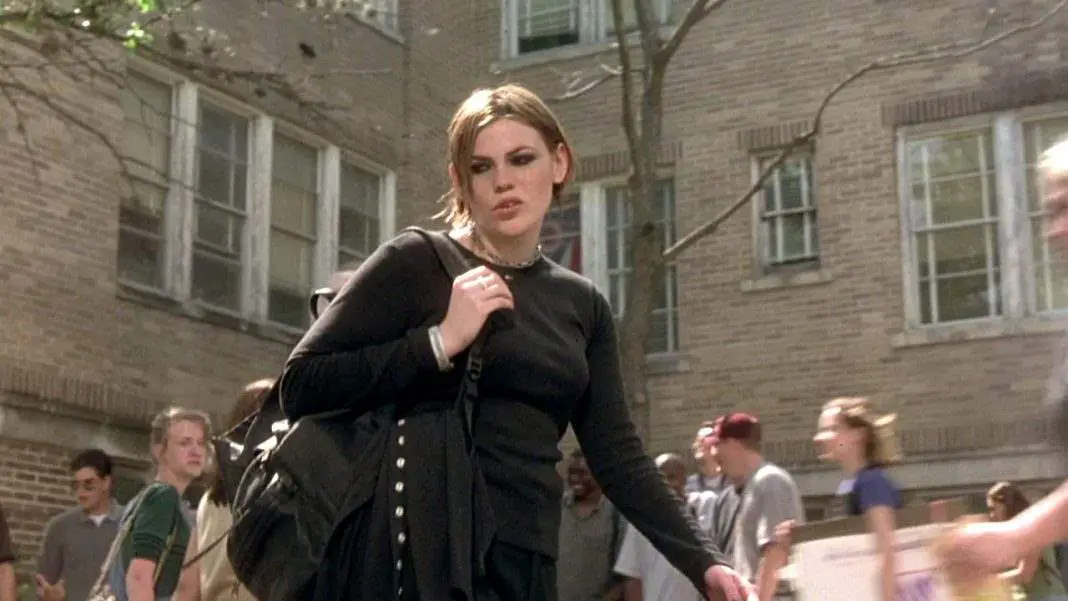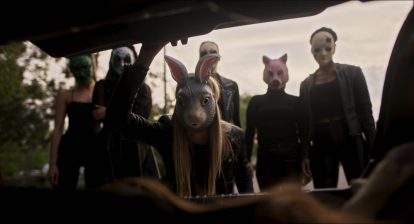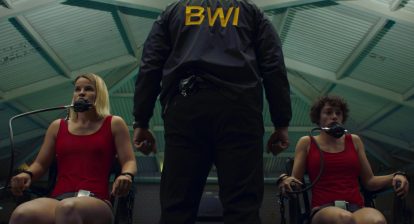The 2017 Women in Horror Film Festival saw female writers, producers, directors and actresses gathered in Fayetteville, GA to celebrate diversity in the horror genre. The festival held a special screening of Wes Craven’s New Nightmare, followed by a Q&A panel with Heather Langenkamp, Amanda Wyss, and Marianne Maddalena.
Wicked Horror had the pleasure of sitting in on the panel and listening to these women talk all things Nightmare. Read on for the full transcript!
How many stunts did you do yourself?
Heather: The diving into the pool was a stunt woman. She was so terrific, but she did a lot of the stunts for me. But I slid down the slide myself. And then getting out of the water and peeking around, fights with Robert, that was all me. Most of it, you know, we did half and half. She would start the stunt with the fight scenes—I always wanted to do them. And Robert is very classically trained, so we always choreographed it step-by-step, and worked it out so he didn’t have to totally brutalize me. But sometimes he did. He bashed my head against a couple of walls there. But he always apologized. But he and I have always loved to fight. Even from the first movies on. We did a lot of the fights in Nightmare 1. And whenever my character had to roll off the bed or something, then we’d bring in the stunt woman. I think that physical acting is actually my most favorite part of the process.
This goes back to the first original Nightmare on Elm Street; Tina’s death scene. I’m sure a lot of people know that this was a rotating set. What was it like shooting that scene?
Amanda: It was literally, like, a room built like a box inside a large sound stage. It had a fulcrum or a crank on the side.
Heather: And they would just push it. The room was on two pins and would spin on these pins. People would push it just to keep it moving and going around. It wasn’t electronic or mechanical.
Amanda: I think that that’s part of the immediacy of that death scene and why it’s become so iconic. Everything was so practical. Everything in that room was either nailed down, glued on or tacked in place. The other actors in the room were in these airplane-type chairs and they were strapped in. But I was always on the floor. I ended up getting vertigo and completely freaking out. When we started moving suddenly I couldn’t tell which direction was up or down anymore. I was really screaming because I thought I was falling off the floor. And then I was on the ceiling. I didn’t understand how everyone else was in place. I completely lost my mind. It was an experience.
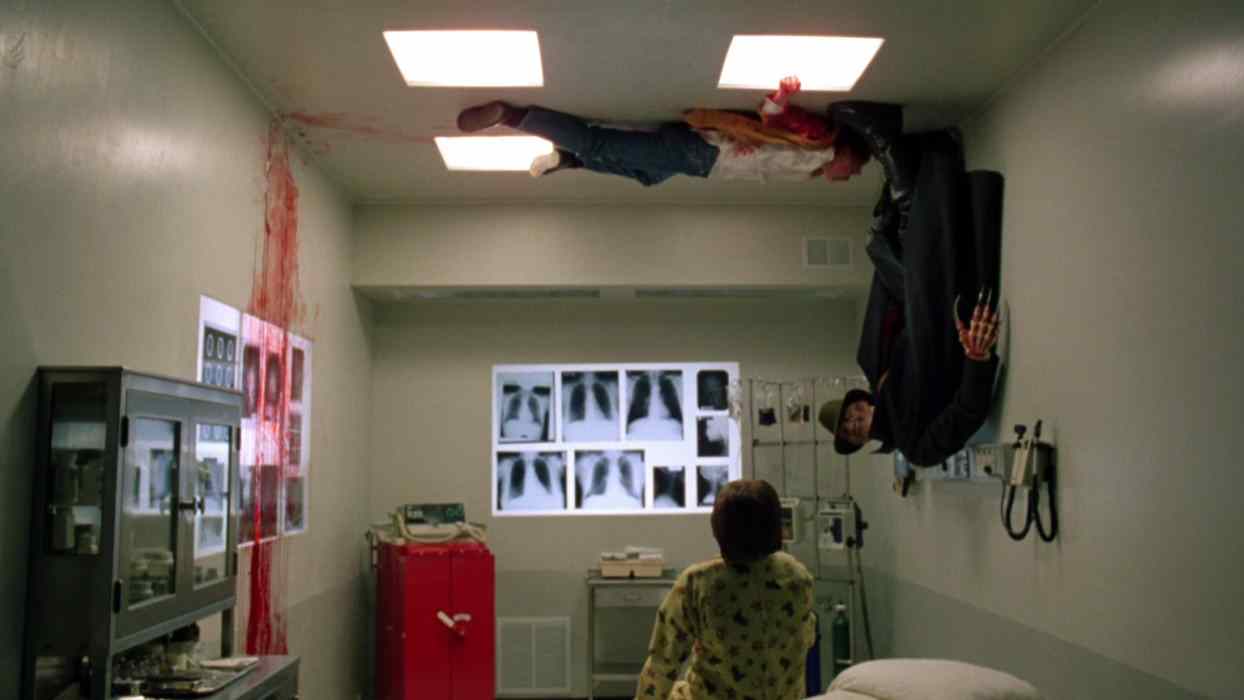
Heather: It was such a successful shot that with Glen’s scene they used the same set with different furniture and did Glen, you know, all the blood coming out of his bed. So they used the same set for that and what was very cool about that was that when the men were pushing the room to go around, they pushed in the wrong direction, so the blood came out of the bed and it was supposed to go over the walls. But because they were pushing it in the wrong direction the blood came out of the bed and just splashed on everyone out in the audience who were watching. And there was like no blood [on the walls]. And Wes does only one take so he decided, in the editing, to make it that strange eternal wind blowing away the blood. Wes made it work. He’s just a genius.
You’re arguably a part of something that a hundred years from now in horror is going to still go on. What’s it like being a part of something that’s completely reshaped horror?
Heather: It doesn’t register with me. I hate to say that, but I just don’t feel it at all. I do feel it when I’m in places like this, but… I don’t feel it. Maybe when I’m older, when I’m looking at my life in retrospective, taking stock. I’m really proud of what I’ve done, and I feel so honored to have worked with Wes and Mary Ann and Mandy and everybody, but… I don’t know. I don’t feel like anything I’ve done could ever have that kind of impact. I know that intellectually it does, but as a person I don’t feel that.
I’ve always been curious about the interpretation of the end of Nightmare on Elm Street. What were you told by Wes as to the final scene where suddenly Freddy comes back at the end?
Heather: We did 10 different endings probably. So we had no idea which one would be chosen. We didn’t really understand why some of the endings were being shot. We had so little time and it was like, “Okay, throw this up, now throw this up, okay you guys do this—” In one day we probably did six endings. The hood of the car smashed down. Freddy was driving. Freddy wasn’t driving. There was a sweater, there was no sweater. So we tried every possible ending.
Amanda: Yeah, it was like, “You guys all change seats.”
Heather: “You get in front, you get in back.” The producer just had this idea that perhaps he shouldn’t put an air-tight ending on the movie. I think it was an instinct, like, maybe this would continue. Which was a novel idea at the time. So when we finally saw the ending… I didn’t understand it. But now that I’ve seen it so many times, my belief is that Nancy is in her dream, she’s fighting Freddy, she says that great line, you know, “You’re nothing, you’re shit.” And then she turns to open the door and she feels like she’s conquered him, but she’s still in her dream. And it hasn’t ended. But she hasn’t died either. She goes on to live another day in her dream. And then when we get to see her again, she’s Nancy psychotherapist. So we realize that she did wake up and she did survive that dream. That’s how I see it.
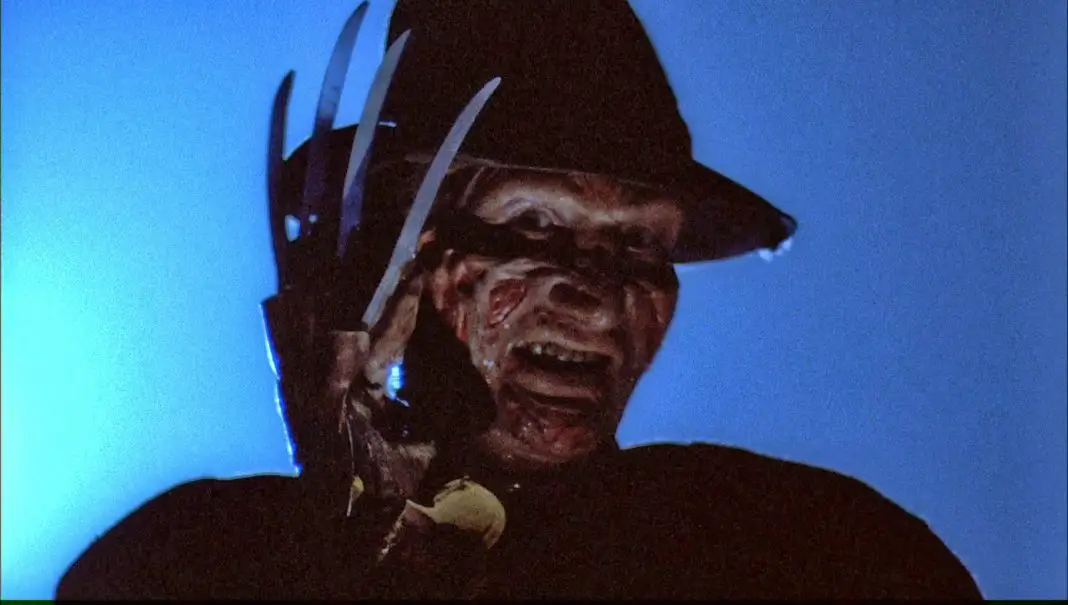
Did Robert ever get you anything nice to show his remorse after he killed you?
Heather: I never got anything like flowers or anything. But Robert did show a lot of—I don’t know, compunction? What is that word? Where you feel really guilty for what you’ve done. He does not feel happy at all about the way he kills people. Especially like in Nightmare 3, and even Nightmare 7 where he’s even more evil. He would feel terrible about how he would treat little Miko Hughes and he would go overboard after to try and show, like, “I’m okay, I’m a nice man, I’m not gonna hurt you.” And so that’s the good side of Robert that would come through.
What was your desired outcome in the Freddy vs. Jason film?
Heather: Of course I wanted Freddy to win, but I mean I never really saw that movie. I mean I love the Nightmare on Elm Street series, but I mean after 30 years? When they had the later sequels I was rolling my eyes a little bit about it.
How much did the script change from what you received to the movie that you shot?
Heather: There were scenes that got cut, but not many. There were scenes that were written. Do you remember, there was a weird character in a van?
Amanda: Yeah, it was like a stalker. I hated that one. Because Wes wanted to throw in the red herring of Heather having the stalker. So he added more scenes where that stalker was part of the script. But it was super distracting.
Have any of you ever written a horror movie?
Amanda: I haven’t written a horror movie. Have you?
Heather: Actually I have written a couple horror movies. And I really like my horror movies. And I just decided to write one with Mandy today.
Amanda: Heather is a really good writer. I’ve had the pleasure of doing critiqued readings of her scripts, and she’s incredibly talented.
Before Nightmare kind of came into your lives, were you guys fans of the horror genre?
Marianne: I wasn’t necessarily a genre fan when I started working with Wes. The first movie we did together, I worked as his assistant on Deadly Friend, and then on The Serpent and the Rainbow. And then the first movie I did was Shocker as a producer. And then The People Under the Stairs.
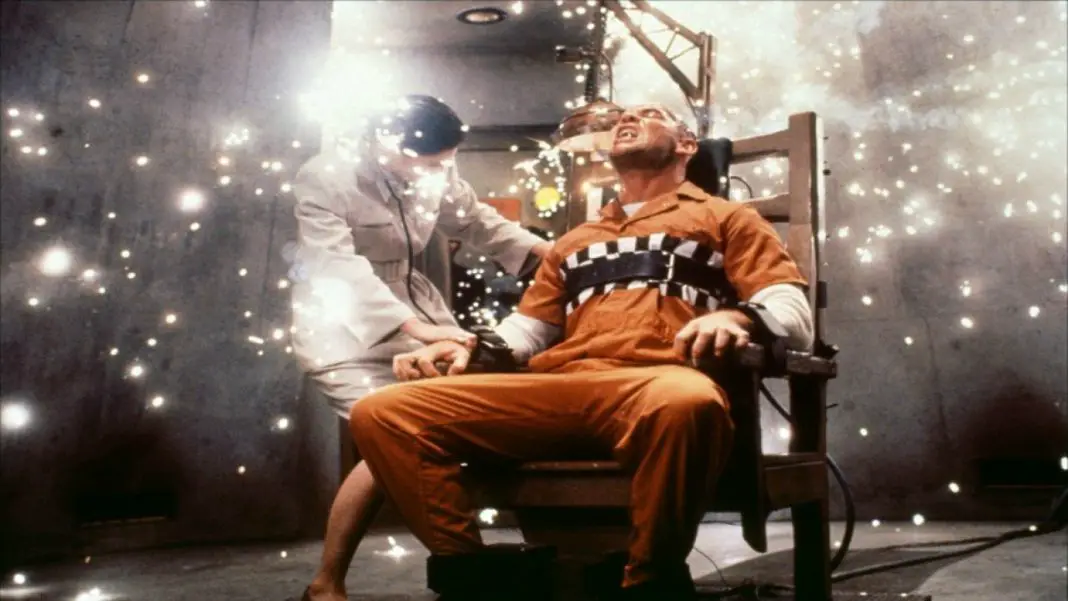
Heather: Wes was a shy person. He did not like to interface with people. He didn’t have a comfort with, you know, just shooting the shit with people on the street. He was an introvert. And he paired up with Marianne, and she was so fresh and young and energetic, and she became the foil for all of his interactions with the world. Ones that might have been too overwhelming, or too scary, or that he just didn’t want to deal with. And together they just went on this rampage of success and I can say this, totally honestly, that he probably couldn’t have done what he did without Marianne. It’s the secret of Wes’s success. To me, we would not say the name Wes Craven without Marianne.
Marianne: One thing that Wes would do, that just shows you how he contained his energy on the set, is that he would never chit-chat. He was always doing a crossword puzzle so that people wouldn’t approach him and talk. First of all, it was uncomfortable, and second of all, it took his energy away. And then when DVD machines came in he would watch a movie. He’d watch a movie between the takes. He just did not want to chit-chat. He was just protecting himself from anyone approaching him.
What are your thoughts with where horror movies are today?
Marianne: I loved Get Out. I loved Don’t Breathe. I think there are good movies. I think, for a while, you couldn’t really name a horror director coming up.
What’s your opinion on the Nightmare remake?
Heather: I live by the rule, “If you know it’s gonna be crap, don’t see it.” I didn’t want to give those guys any money, so I didn’t see it. I know that they made the movie and then they did a bunch of test audiences and it just didn’t score very well. So then I got a phone call from their office asking me if I could be in a scene they were going to reshoot, a waitress scene in a diner. I don’t even know if that scene is in the movie. But they asked me if I would come in and play a cameo. I just don’t think I’ve ever felt happier when I said, “I’m sorry, I don’t think I can do that.” I just knew that I didn’t want to be part of that. Whenever anybody wants you to do a scene as a cameo in a remake because they’ve gotten bad testing… there’s no winning in that situation. And you have to step back and go, “If it’s that bad, and no one likes the movie, do I want to try and be the band-aid?” No. I’m so glad I didn’t do that.
